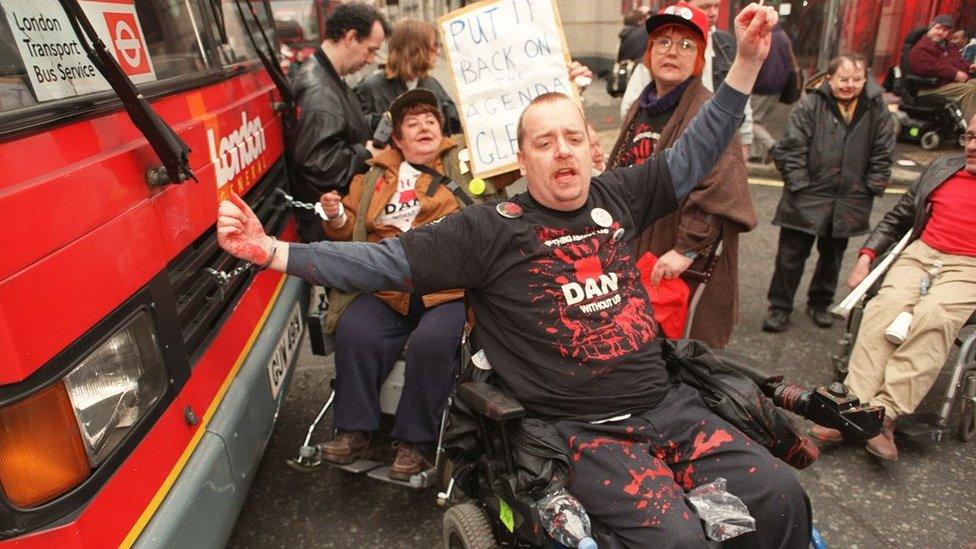Neon lights exhibition by disabled artist opens
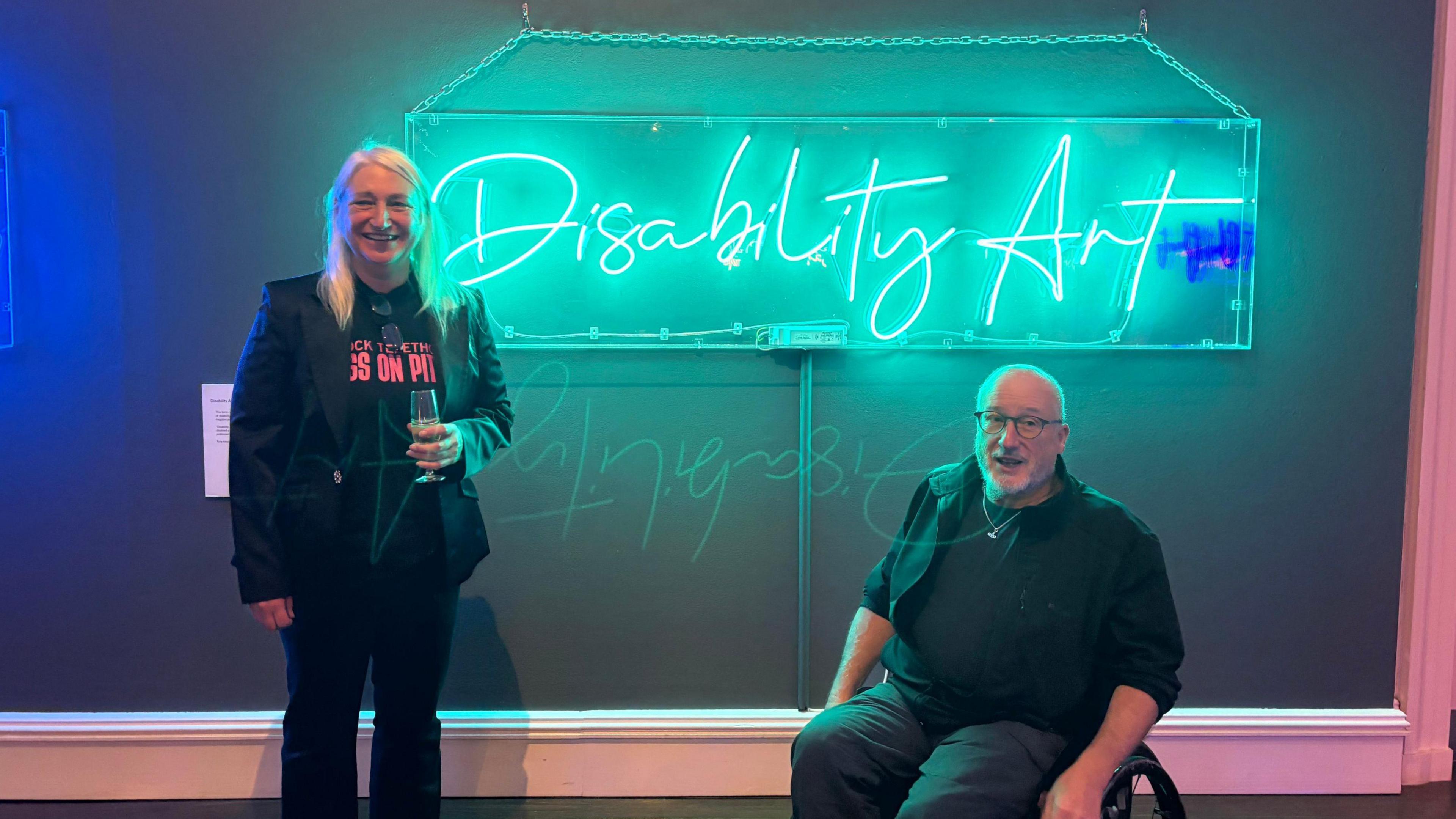
Zoe Partington and Tony Heaton, fellow artist
- Published
An exhibition of neon art featuring slogans used in disability rights movements of the 1980s and 1990s is on display in Shropshire.
The display - @ Tight Control: Humans Rights in Neon Lights - is free to visit at Shrewsbury Museum and Art Gallery until 29 November.
It was made by disabled artist and activist Zoe Partington, who lives in Shropshire and went to art college in the county.
Slogans include "Access Now", "Disability Pride", and Love Not Pity".
"I think at the moment, particularly for disabled people, there's lots of mixed messages going out there about disabled people, taking benefits and taking money," said Ms Partington.
"I think it's really important that the government have clear messages that disabled people need to have equality within society, they need to have equal access to getting into employment, so they can be valuable citizens - which they are."
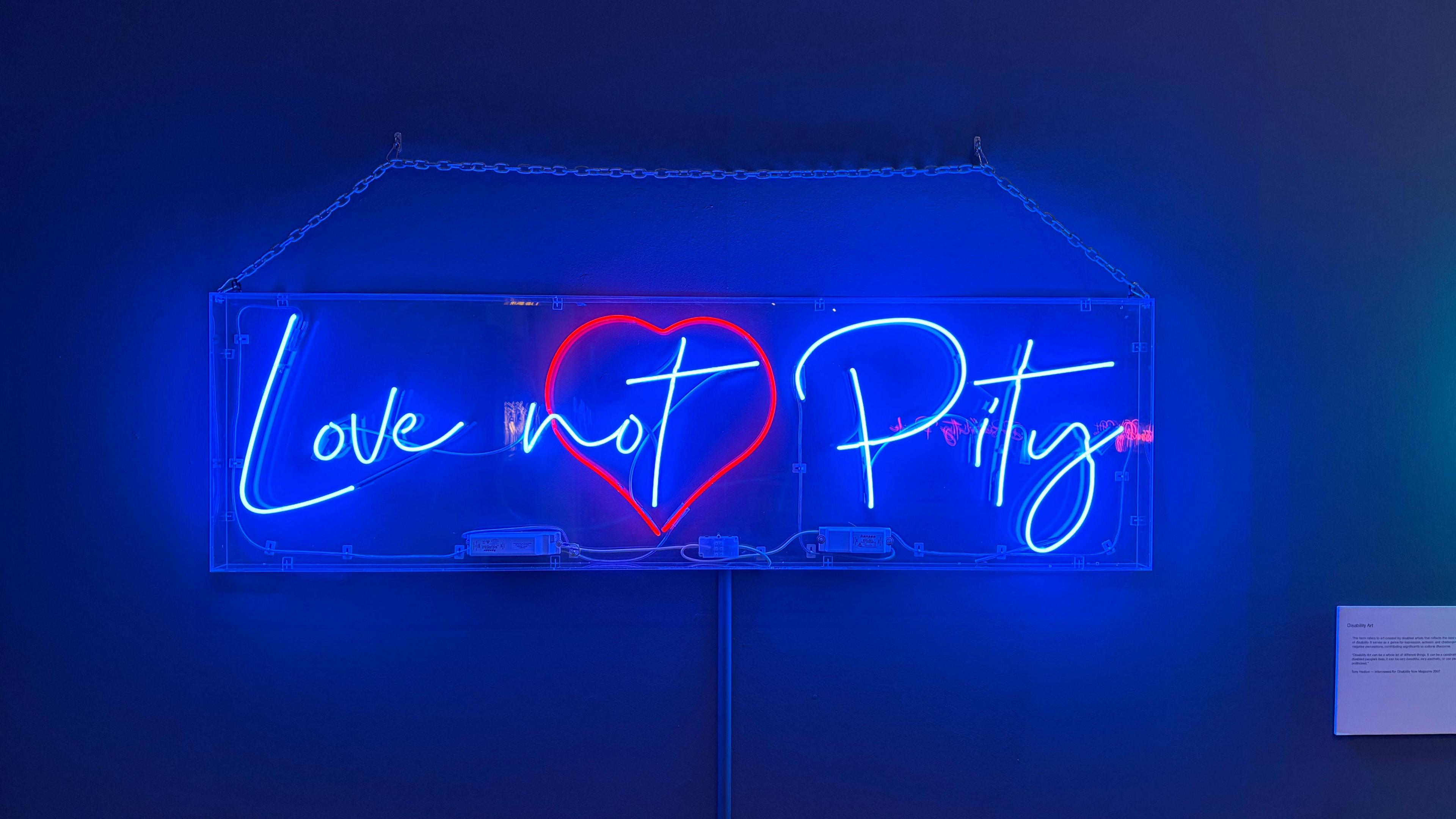
The colours aims to enhance accessibility for blind and partially sighted people
"Disabled people have to keep fighting… we're talking 40 or 50 years later with some of these slogans - we haven't moved forward, were going backwards," she added.
One of the signs, in pink and black, is reminiscent of the t-shirts and placards used during demonstrations in the late 90s.
The contrast of the colours aims to enhance accessibility for blind and partially sighted people, which is significant to Ms Partington.
She said the slogan "Love Not Pity" challenged societal perceptions and stereotypes, while "Access Now" and "Disability Pride" served as rallying cry for systemic change.
On "Access Now", Ms Partington said: "If we look back to when these campaigns were going on, when these demonstrations were happening… transport wasn't accessible for disabled people, wheelchair users had to have, as it was framed, 'special buses' to get from A to B, or were segregated in schools.
"Disabled people, we were not there in the everyday aspect.
"Transport has changed dramatically but we're still not there."
Get in touch
Tell us which stories we should cover in Shropshire
Follow BBC Shropshire on BBC Sounds, Facebook, external, X, external and Instagram, external.
Related topics
- Published25 May 2024
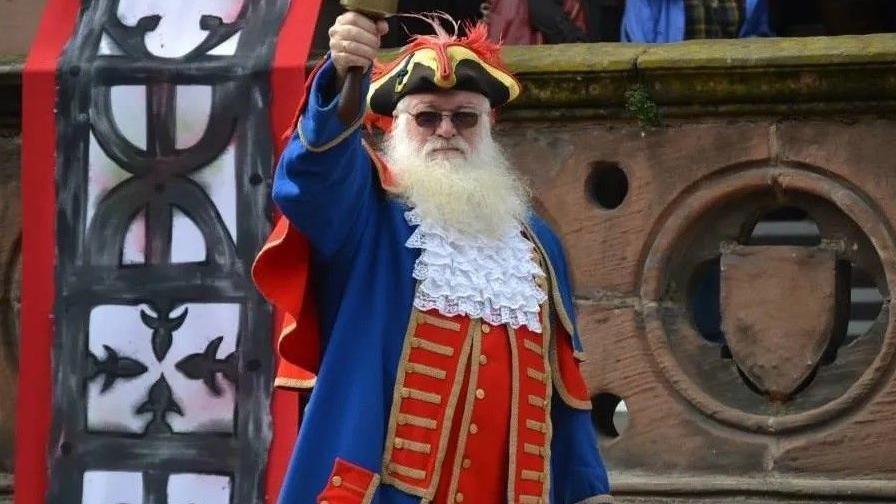
- Published7 November 2020
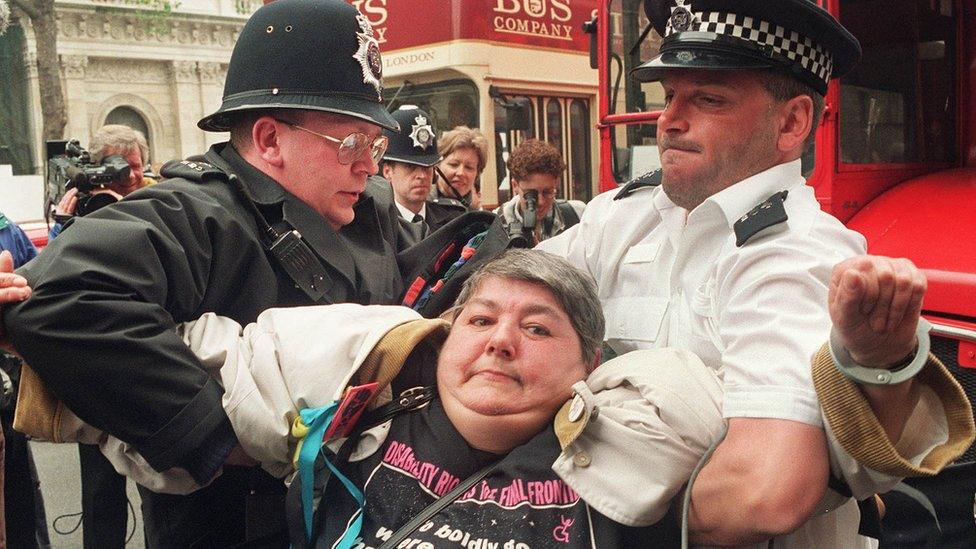
- Published7 November 2015
